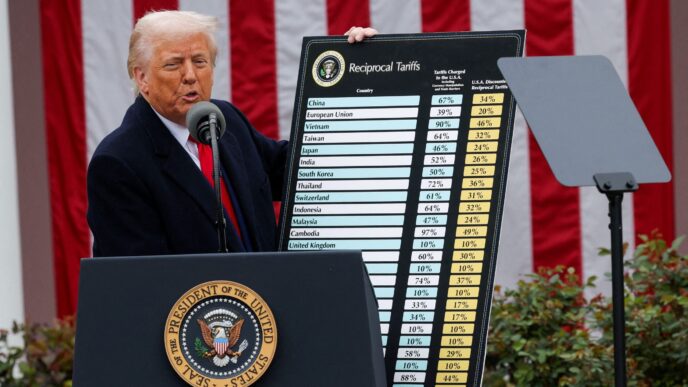Corporate reputation is the collective perception of an organisation held by its stakeholders – employees, customers, investors, regulators, and the public at large. It encompasses the sum of beliefs and opinions about a company’s integrity, credibility, and overall performance. While it is an intangible asset, reputation wields tangible influence, directly affecting customer loyalty, brand equity, and an organisation’s ability to attract top talent and secure investment. A solid corporate reputation can provide a competitive advantage and serve as a strategic differentiator in crowded markets. Conversely, a damaged reputation – caused by ethical lapses, poor crisis response, or subpar product quality – can tarnish brand value and erode stakeholder trust, sometimes irreparably.
Leadership sits at the heart of any organisation’s reputation. Leaders not only establish the company’s strategic direction and objectives but also set the moral and cultural tone for everyone else to follow. Their behaviour, communication style, and decision-making processes strongly influence how stakeholders perceive the organisation. When leaders demonstrate integrity and accountability, they reinforce a culture that values ethical behaviour, transparency, and respect for stakeholders.
Moreover, leadership’s handling of emerging risks and crises often determines how well – or poorly – a company protects its good name. In periods of uncertainty or intense public scrutiny, effective leaders can step forward as credible spokespersons, take decisive action, and communicate candidly, thus demonstrating genuine concern for stakeholder interests. Such actions can help mitigate reputational damage and even strengthen stakeholder trust in the long run. On the other hand, leaders who lack credibility or fail to respond swiftly and transparently risk magnifying a crisis and exacerbating reputational harm.
The Strategic Importance of Corporate Reputation
A strong corporate reputation serves as a powerful magnet for customers, investors, and top-tier talent. In today’s crowded marketplace, where products and services often appear commoditised, reputation can distinguish one organisation from another by signalling trustworthiness, quality, and reliability. This credibility factor lowers the perceived risk for stakeholders engaging with the company – whether as consumers purchasing goods, suppliers entering into partnerships, or potential employees joining the team.
A favourable reputation also translates into tangible financial benefits. It can justify premium pricing, spur repeat business and reduce marketing costs through word-of-mouth endorsements. From an investment standpoint, companies with strong reputations tend to secure better access to capital, as investors see less risk in backing an organisation that has proven its reliability over time. Ultimately, a positive reputation acts as both a protective shield and a growth accelerator, enabling companies to thrive in competitive environments.
On the flip side, negative events – ranging from ethics breaches and regulatory non-compliance to product recalls and data breaches – can rapidly erode trust and diminish brand equity. A single misstep, if inadequately managed, can reverberate across social media and 24/7 news cycles, amplifying damage on a global scale. Such reputational harm not only affects the bottom line but can also destabilise leadership teams, undermine employee morale, and trigger legal and regulatory consequences.
Leaders who appreciate the interconnectedness between reputation and organisational resilience are more likely to invest in preventive measures such as robust governance, risk assessment, and crisis management planning. By proactively addressing potential vulnerabilities and fostering a culture of accountability, they equip their organisations to withstand setbacks and emerge with minimal reputational damage. Ultimately, safeguarding corporate reputation is not only about avoiding missteps; it’s also about fortifying long-term resilience through disciplined leadership and proactive risk management.
Leadership as the Guiding Force
The “tone from the top” is one of the most critical determinants of corporate behaviour and reputation. When leaders demonstrate integrity, transparency, and accountability in their daily decisions, these qualities set the standard for the entire organisation. Employees take cues from leadership about what is acceptable and what is not, and a culture of openness and ethical conduct tends to cascade down throughout all levels of the company. As a result, consistent values and messaging from senior executives provide a powerful framework that underpins the organisation’s approach to managing risks, engaging stakeholders, and maintaining public trust.
Conversely, a leadership team that fails to model ethical behaviour or remains silent in the face of misconduct can foster a culture of complacency – if not outright negligence. When employees sense disconnects between what leaders say and what they do, trust deteriorates, morale suffers, and reputational risk escalates. Setting a principled tone at the top is therefore not just about following rules; it’s about creating a collective belief system that influences how every individual in the organisation behaves under both normal and crisis conditions.
Vision, Values, and Culture
Leaders who articulate a clear vision and define core values lay a strong foundation for reputational success. These guiding principles shape decision-making, inform policies, and provide a shared sense of purpose that unites employees, investors, and other stakeholders. Whether it’s championing sustainability, prioritising customer-centric innovation, or promoting an inclusive workplace, leadership’s clarity around the organisation’s aspirations and principles determines the “who we are” and “why we exist” aspects that resonate powerfully both internally and externally.
Moreover, a values-driven culture acts as an internal compass, directing daily behaviours and interactions. When employees genuinely embody the stated values, it enhances internal cohesion, fuelling higher engagement and productivity. Externally, a company’s reputation grows stronger as stakeholders observe authentic commitments rather than mere marketing slogans. This authenticity, rooted in leadership’s unwavering dedication to the stated vision and values, is a key differentiator that builds trust, fosters loyalty, and ultimately safeguards the corporate brand.
Stakeholder Engagement
In an age of hyper-connectivity and rapid information exchange, stakeholder engagement is an essential leadership competency. Whether dealing with employees, customers, suppliers, regulators, or the broader community, leaders who maintain open and honest lines of communication can more effectively manage expectations and detect emerging concerns before they escalate. Regular engagement – through town halls, feedback surveys, or public forums – shows stakeholders that the organisation values their perspectives and is willing to address issues constructively.
Proactive engagement also provides leaders with real-time insights into reputational risks. If a product defect or complaint trend appears, a transparent and swift response can prevent further escalation and protect stakeholder trust. Conversely, neglecting stakeholder input or offering vague, impersonal communications may exacerbate misunderstandings and sow distrust. By consistently demonstrating empathy, clarity, and responsiveness, leaders reinforce the message that the organisation’s actions are guided by respect for all those who have a stake in its success. This commitment is pivotal in building a resilient reputation that can withstand both minor disruptions and significant crises.
Critical Leadership Qualities for Protecting Reputation
- Integrity and Accountability: Leaders who consistently act with integrity lay the foundation for a trustworthy organisation. Their willingness to adhere to ethical standards – especially when under pressure – signals to employees that doing what is right matters more than expediency. In parallel, accountability means accepting responsibility for both successes and failures. When leaders openly acknowledge mistakes, they not only preserve their own credibility but also foster a safe environment where employees feel empowered to report issues and raise concerns. This openness can prevent small problems from growing into major reputational crises.
- Transparency and Open Communication: In an era of instant communication, where rumours can spread as quickly as factual news, transparency is a protective shield against misinformation. Leaders who share information proactively – whether about financial performance, operational challenges, or forthcoming changes – mitigate the risk of speculation and mistrust. By addressing uncertainty directly, they help stabilise stakeholder perceptions, showing that the organisation has nothing to hide. This level of openness often garners respect and loyalty, especially when it’s maintained even in the face of uncomfortable truths.
- Empathy and Emotional Intelligence: Effective leaders are those who not only understand stakeholder concerns but also respond with genuine empathy. This emotional intelligence translates into recognising the human elements behind business issues – such as the fear an employee might feel during layoffs, or the sense of betrayal a customer experiences when a product fails. Showing compassion and willingness to listen doesn’t just resolve conflicts faster; it also enhances corporate reputation by demonstrating that the company values people. This skill becomes particularly critical during crises, when stakeholders are most anxious, and the organisation’s sincerity is under scrutiny.
- Courage and Decisiveness: Protecting corporate reputation often requires making tough calls under intense pressure – from apologising for errors to discontinuing popular but problematic products. Leaders who show courage and decisiveness can prevent issues from spiralling out of control. For instance, recalling a product at the first hint of safety concerns sends a clear message that customer well-being is paramount. While difficult decisions can carry immediate financial costs, a leader’s willingness to prioritise ethical considerations ultimately strengthens stakeholder trust and preserves long-term reputational value.
Practical Steps for Leaders to Safeguard Reputation
Proactive Risk Management
One of the most effective ways to protect corporate reputation is to stay ahead of potential threats. Leaders should work closely with risk and issues management teams to identify, assess, and prioritise vulnerabilities – be they operational, regulatory, or reputational. This involves implementing processes such as regular audits, robust internal controls, and ongoing scenario planning to gauge the potential impact of crises. Additionally, staying attuned to external factors – like shifting consumer sentiment, emerging industry trends, and evolving regulatory requirements – empowers leaders to respond quickly and decisively. By maintaining a steady, forward-looking focus on risk, organisations can often prevent reputation-damaging events before they arise.
These innovations represent a significant shift in the tech industry, highlighting the potential for gadgets to not only improve our daily lives but also contribute positively to environmental conservation. By integrating green technologies into everyday devices, we are stepping into an era where gadgets not only bridge the gap between science and society but also play a vital role in fostering a sustainable future.
Ongoing Ethics and Compliance Training
Ethics and compliance programs are not mere box-ticking exercises; they form the backbone of a principled corporate culture. Leaders play a pivotal role in championing these initiatives, from allocating budget resources to personally endorsing training sessions. By ensuring that employees at all levels understand regulatory requirements, ethical standards, and reporting procedures, leadership sets a clear expectation of behavioural norms. Consistent reinforcement helps embed ethical considerations into daily decision-making. Ultimately, a workforce trained to spot and address ethical red flags can reduce reputational risks while fostering stronger stakeholder trust.
Transparent Reporting and Accountability Structures
In an environment where global stakeholders demand ever-greater levels of disclosure, transparency can distinguish an organisation as both reliable and trustworthy. Leaders who create clear reporting lines and accountability structures facilitate effective communication from the front lines to the C-suite. This might involve implementing whistleblower programs, establishing regular ethics checkpoints, or adopting recognised reporting frameworks such as those for ESG (Environmental, Social, and Governance) or sustainability. By holding themselves and others accountable, leaders underscore their commitment to upholding the highest standards – an assurance that resonates powerfully with investors, customers, and the public.
Crisis Preparedness and Response
Crises are a test of leadership’s resolve and the organisation’s resilience. Preparation is paramount: leaders who develop and regularly update crisis management plans position their teams to respond confidently under pressure. This includes designating spokespersons, establishing clear escalation paths, and running simulations or “war games” to practice realistic scenarios. When a crisis does occur, prompt, accurate, and empathetic communication can help manage public perception and protect the corporate brand. Leaders should maintain visible engagement, candidly share verified information, and communicate next steps to reassure stakeholders. By demonstrating concern for impacted parties and a commitment to restoring normalcy, leaders can emerge from a crisis with trust not only intact but potentially strengthened.
Benefits of a Strong Leadership Approach
When leaders consistently demonstrate integrity, accountability, and empathy, they foster a level of confidence that endures beyond individual transactions or projects. Stakeholders – whether they are customers, employees, or investors – come to rely on the organisation’s honesty and principled conduct. This reservoir of trust can be invaluable during challenging times; when a crisis hits, an established track record of ethical leadership often buys the company crucial goodwill and patience from the public. In essence, robust leadership not only wins stakeholder loyalty in the short term but also builds a reputation strong enough to weather reputational threats over the long haul.
Effective leadership is a key driver of organisational resilience – an entity’s ability to adapt and recover from setbacks. Leaders who prioritise proactive risk management, transparent decision-making, and open communication ensure that problems are promptly identified, acknowledged, and addressed. This approach minimises surprise events and mitigates reputational fallout when issues do arise. Additionally, a culture of adaptability and continuous improvement, championed from the top, positions a company to capitalise on market shifts and new opportunities. Over time, this dual emphasis on risk awareness and innovative thinking fuels sustainable growth and reinforces a positive market image.
Culture is the intangible glue that holds an organisation together, and leadership sets the tone for how that culture evolves. Leaders who walk the talk – upholding ethical standards – create an environment where employees feel valued and empowered. Such cultures naturally breed higher levels of engagement, productivity, and creativity, all of which flow into stronger brand advocacy from within. When employees become passionate ambassadors for their company, the reputation they project to external stakeholders is rooted in authenticity and pride. This alignment of internal culture with external messaging cements a company’s status as a reputable and responsible player in its industry.
Conclusion
Leaders stand at the forefront of protecting and enhancing corporate reputation. By setting a tone of integrity, embedding clear values into the organisational culture, and engaging stakeholders with transparency and empathy, leaders create a trust-based environment that can withstand challenges. The practical steps – proactive risk management, robust ethics training, transparent reporting, and crisis preparedness – underscore that safeguarding reputation is an ongoing, structured effort rather than a reactive, ad-hoc response.
For organisations seeking to bolster their reputational defences, the first step is a candid self-assessment of current leadership practices. Are senior executives consistently modelling ethical behaviour? Are risk management and crisis communication plans up to date, tested, and widely understood? If the answers are uncertain, it may be time to invest in leadership development, risk assessments, or refreshed policies that ensure ethical principles permeate every aspect of the business.
Building a resilient reputation starts long before a crisis hits. Leaders who consistently prioritise transparency, ethics, and stakeholder engagement tend to emerge from difficult situations with their credibility intact – and often even stronger than before.
By embedding these principles into every layer of the organisation, leaders can uphold their corporate reputation as a valuable asset that drives sustained growth, fosters innovation, and cements stakeholder confidence for the long term.













